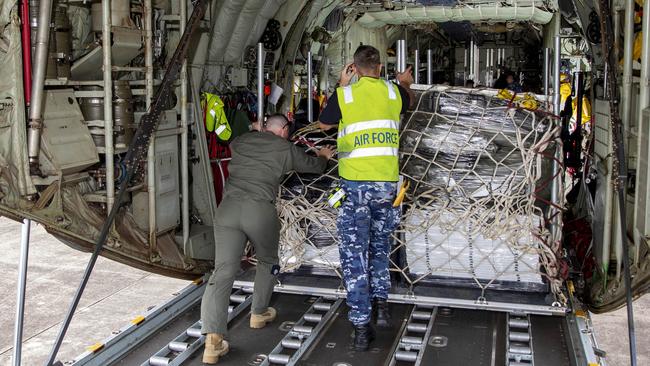Rural PNG citizens most vulnerable if virus spreads
For almost a year, the COVID-19 isolation ward health authorities built in Alotau to cater for an expected storm of COVID19 infections has stood empty.

For almost a year, the COVID-19 isolation ward health authorities built in the southeast Papua New Guinean town of Alotau to cater for an expected storm of COVID19 infections has stood empty.
Milne Bay province reported just two cases last year, though provincial administrator Ashan Numa concedes more may have gone undetected given the shortage of testing kits.
Now, authorities in one of PNG’s most vulnerable provinces are bracing for the outbreak they thought they had dodged after confirming 11 cases in 11 days including, worryingly, an infected mine worker from one of Milne Bay’s most remote islands.
“That raised the alarm because our health services in rural areas are quite basic and we will struggle if the numbers climb there,” said Mr Numa who also heads the provincial COVID-19 taskforce.
There are fears Alotau’s outbreak could be the start of a worst-case scenario from the COVID-19 outbreak in the capital Port Moresby, which has stretched the country’s best-resourced health system to breaking point.
On Thursday, Australian doctor Barry Kirby — who runs a maternal health charity servicing remote Milne Bay communities — flew sample vials into health workers in a mountain area 50 minutes from Alotau so they could take nose and throat samples at a school a further hour’s walk away where reports have been trickling out of students suffering flu symptoms.
Those samples will then be transported in an ice-filled esky to a medical clinic a day’s walk away — the same way vaccines will be transported into PNG’s most remote areas — to determine if COVID-19 has already jumped to the rural areas. What can be done if it has is not at all clear.
Even in Alotau, just an hour’s flight from Port Moresby, says Dr Kirby: “If we have people in respiratory distress that will be a problem for us because we don’t have a lot of respirators and it would certainly test our ability to look after patients.”
The entire province has two respirators for 300,000 people.
“If this spreads to the bush, people will just come down with it, some people will die, others will get over it. There will be a lot of people who die and their deaths put down to something else.”
Alarmed at the rapid spread of the virus in its closet neighbour, Canberra is sending emergency supplies and vaccines to help.
But Milne Bay authorities worry about how long it could take for that help to reach them from the more needy capital.
The next few weeks will determine the extent of infection in Alotau’s 20,000-strong population, and if it has spread to the subsistence communities that can take days to reach by boat and on foot.
“To what extent those infected people who have come from Port Moresby have interacted with people here we don’t yet know, but the exposure around each of those people will definitely have an exponential effect,” Mr Numa told The Weekend Australian.
Asked if the province can cope, he hesitated.
“If the cases remain below 50 or so we will probably manage because we have plans in place and we have our isolation ward. But if it gets to the districts then it will be unmanageable,” he responds.
“Our strategy is to try our best to contain it in Alotau so we don’t have people dying in the districts. At least here we have a few more resources to manage it.” The PNG government has already announced it will restrict internal flights, most likely from Monday.
Milne Bay is also closing its schools and locking down all districts, getting the message out however it can — email, phone, VHF radio and community noticeboards — but Mr Numa concedes it could take days to filter through to the most remote communities.




To join the conversation, please log in. Don't have an account? Register
Join the conversation, you are commenting as Logout